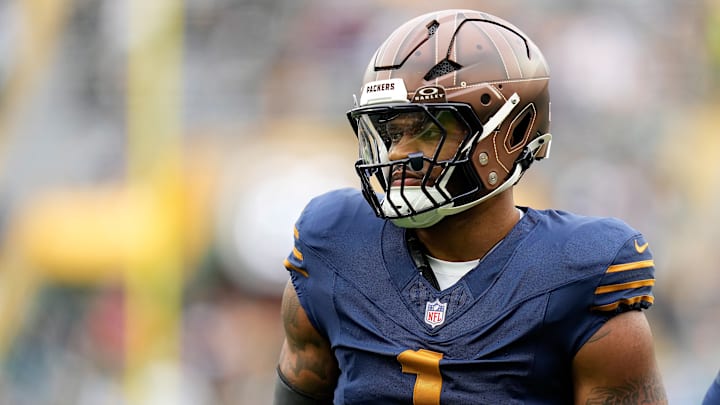The Green Bay Packers don't have any intention of trading Micah Parsons to another team, but if that changes, they'll need to choose the destination carefully.
Green Bay landed a phenomenal deal for Parsons, only sending two first-round picks and Kenny Clark to Dallas for a generational pass-rusher entering the best years of his career. However, ESPN's Adam Schefter revealed a Brett Favre-style "poision pill" clause the two teams inserted into the deal.
"Unbeknownst to everyone except the few who crafted the August blockbuster trade that sent Parsons from Dallas to Green Bay was a 'poison pill' condition that, according to sources involved with the deal, prevents the two-time All-Pro from playing for Philadelphia in the immediate future," reports Schefter.
Packers and Cowboys inserted a 'poison pill' into the Micah Parsons trade
Per Schefter, if the Packers trade Parsons to an NFC East team this or next season, they will have to send the Cowboys their 2028 first-round pick. It's likely a strategy from Jerry Jones to prevent Parsons from heading to the Philadelphia Eagles, although let's be honest, the Packers would have no incentive to send him there.
READ MORE: Mina Kimes just said what Packers fans have been yelling about Matt LaFleur all year
It's like the Favre poison pill conditions from the 2008 trade, as Green Bay worried that Favre would end up in Minnesota (which is ironic). The New York Jets would've owed the Packers three first-round picks had they traded him to an NFC North team.
Instead, the Jets released Favre, which allowed him to freely sign with the Vikings in 2009.
Schefter also notes that the "poison pill" terms are the same for Kenny Clark, preventing the Cowboys from trading him to an NFC North team within the same timeframe.
It's all a nothingness, really, as the Packers will have no intention of trading Parsons this or next season. The massive contract extension they gave him makes it almost impossible, regardless. And even if they could trade Parsons and wanted to, there's little chance they'd want him to remain in the NFC, anyway.
If anything, this "poison pill" helps the Packers, as it ensures Clark, who recently turned 30, won't return to an NFC North rival until at least 2027.
